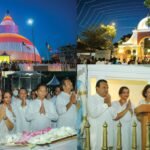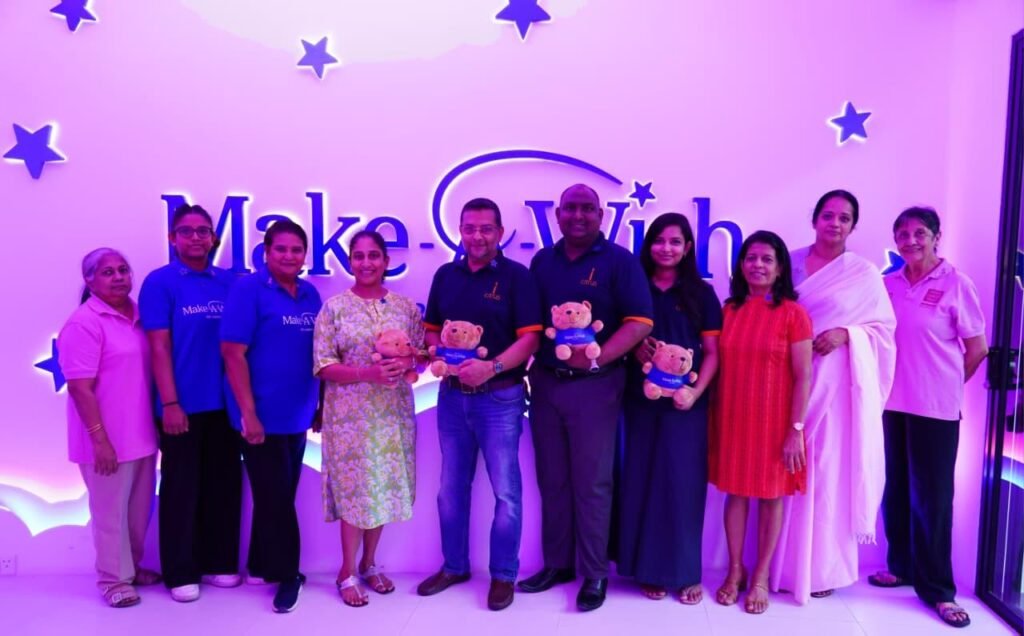Set amidst the vibrant, emerald hills of Sri Lanka’s central highlands, where waterfalls cascade down cliffs and clouds brush against towering peaks, Diyagama West stands as a tea estate so expansive, rich in history and self-sustaining that it functions more like a hidden kingdom than a plantation where only a few places in the country so seamlessly blend colonial legacy, ecological richness and cutting-edge sustainability.



With over 858 hectares of cultivated land, a resident population of more than 7,000 and tea bushes that date back over 125 years, Diyagama West stands as a timeless giant in Sri Lanka’s central hills, a place where history, community and innovation come together to create some of the finest tea the island has ever known.
Diyagama West Estate is located directly below the southern edge of Horton Plains National Park and features lush tea plantations interspersed with patches of secondary forest and jungle, supporting a rich diversity of flora and fauna including endemic birds, hill country leopards and wildlife typical of Sri Lanka’s central highlands. The estate is owned by Agarapatana Plantations PLC, a subsidiary of Lankem Developments PLC and managed by Lankem Tea & Rubber (PVT) Ltd.
The estate’s roots run deep. Established in the 1870s under the name Diyagama, it began as a coffee plantation owned by the Dimbula Coffee Company Ltd. At the time, it stretched across a colossal 3,000 acres divided into five divisions. But as coffee wilted under the weight of disease in the 1880s, Diyagama transformed itself. In 1885, it began its journey into tea with a modest 100-acre plot. By 1887, it had expanded to over 1,500 acres, and by the turn of the century, Diyagama had become one of the largest tea plantations on the island. The estate eventually split into two in 1948, Diyagama West and East, with Diyagama West inheriting two-thirds of the original land.


Situated in the Agrapatana sub-district of the Nuwara Eliya region, Diyagama West climbs from 1,372 metres to 2,057 meters above sea level, making it ideal for cultivating high-grown tea. The estate enjoys global prestige, with its Dimbula-season teas marketed in the UK by Taylors of Harrogate as straight-line, garden-fresh teas. During the quality season, from January to March, Diyagama West produces some of the most prized light, bright teas that command top prices at the Colombo auction. Its ability to craft semi-leafy teas has also earned it record-breaking recognition.
Revolutionizing Tea Production Through Innovation
Beyond its reputation for tea, Diyagama West is also an estate defined by innovation and sustainability. It proudly features Sri Lanka’s first hydro power unit to tap the cascading waters of Horton Plains, a facility first commissioned in 1936 that remains functional to this day. This very stream, born in the pristine heights of the plains, not only powers the estate but nourishes its people and ecosystem. The estate’s original tea factory, constructed in the same year, sits at an elevation of over 1,500 meters above sea level and processes 30,000 kilograms of green leaf per day. The factory is currently undergoing a transformation to become Sri Lanka’s first fully automated upcountry Rotorvane tea factory, a leap that represents the future of tea production.
While innovation powers its future, heritage defines its soul. In a division named Nutbourne, tea bushes planted over a century ago still stand. These old seedling teas, growing at an elevation of 6,500 feet, have won international awards in competitions held in the USA and Dubai. Another first for the estate was its successful trial of TRI 5000 series cultivars, which introduced a new chapter of high-yield tea to the upcountry region.
Diyagama West can be called a community built on care and continuity. With a workforce of over 670 and a total population exceeding 6,700, the estate operates almost like a small town. Two schools serve the children of estate workers, and a 50-bed hospital which is now under the Ministry of Health, provides healthcare, led by a resident MBBS-qualified doctor. A variety of community initiatives have been implemented in collaboration with the Plantation Human Development Trust. These include nutrition programmes, school supply drives, pre-school construction, re-roofing of line rooms and the creation of a community cultural hall.
Growing a Sustainable Legacy
Social development at the estate is balanced with ecological care. Diyagama West has earned ISO, Rainforest Alliance and Carbon Footprint certifications for its commitment to environmental stewardship. Surrounded by crown forest on one side and Horton Plains on the other, the estate prioritises sustainable agricultural practices such as composting, forking, dolomiting and carefully maintaining buffer zones near sensitive natural areas. To counteract changing climate patterns and labour shortages, the estate has introduced machine harvesting across 100 hectares and implemented gravity-fed irrigation systems to preserve water and boost yields.
Diyagama West Estate is a top producer that contributes over one million kilograms of made tea annually, which makes it a key player in Sri Lanka’s economy through both foreign exchange and employment. It is, in every sense, a self-sufficient community of the tea country, which is also a blend of nature, history, and hard work. Diyagama West remains the flag bearer of the Agrapatana region and a living monument to the island’s tea legacy. In its winding roads, all 110 kilometers of them, and in the smiles of its people, in the scent of fresh tea leaves and the hush of highland winds, the spirit of Sri Lanka’s hill country thrives.






